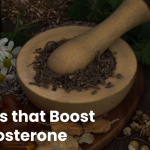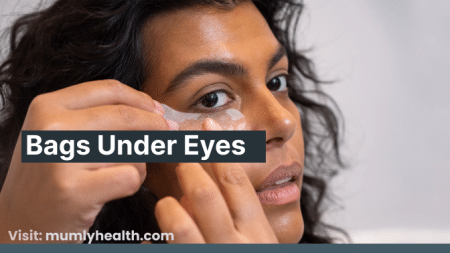Penetration simply refers to the act of inserting one body part or object into another person’s body, typically involving genital or oral contact. In significant aspect of many people’s existence is having sexual relations. Due to problems with entry, it might, however, be a cause of irritation and regret for some people. Being unable to enter can be stressful, anxious, and have an effect on one’s relationships and sexual fulfilment. In this piece, we’ll look into the causes for the difficulty penetrating and talk about some possible fixes.
At some time in their lives, a lot of people struggle with entry during sexual activity. Physical and psychological variables can be among the reasons of the failure to enter. While some of these issues could be addressed quickly, others might take more time and work to fix. Finding a remedy that works for you requires first understanding the root causes of your inability to enter.
Reasons for not being able to penetrate during sexual intercourse
Here are some of the reasons for not being able to penetrate during sexual intercourse:
- Physical factors such as vaginal dryness or tightness, anatomical abnormalities, or erectile dysfunction.
- Psychological factors such as anxiety, past trauma, or negative beliefs about sex.
- Medications that interfere with sexual function.
- Medical conditions that affect sexual function, such as diabetes or multiple sclerosis.
- Lack of sexual experience or knowledge about sexual functioning.
- Relationship issues such as communication difficulties or lack of emotional intimacy.
- Performance anxiety or fear of not being able to perform sexually.
- Inadequate foreplay or arousal.
- Sexual pain or discomfort.
- Substance abuse or addiction.
Physical Factors Affecting Penetration
One of the most common physical factors affecting penetration is vaginal dryness. Vaginal dryness can be caused by a variety of factors, including hormonal imbalances, menopause, and certain medications. When the vaginal walls are dry, they may be less flexible and more prone to tearing, making penetration uncomfortable or even painful. Using a lubricant can help reduce friction and improve comfort during intercourse.
Another physical factor affecting penetration is vaginal tightness. Vaginal tightness may be caused by a range of factors, including genetics, trauma, and lack of arousal. When the vaginal muscles are tight, they may make penetration more difficult or uncomfortable. Relaxation techniques, such as deep breathing or meditation, can help reduce muscle tension and make penetration easier.
In some cases, anatomical abnormalities may make penetration difficult or impossible. For example, a condition called vaginismus causes involuntary muscle spasms in the vagina, making penetration extremely painful or impossible. In such cases, medical interventions may be necessary to address the underlying condition.
Here are also other physical factors affecting penetration:
- Vaginal dryness
- Vaginal tightness
- Anatomical abnormalities
- Lack of lubrication
- Painful sex due to infections or injury
- Erectile dysfunction
- Premature ejaculation
- Delayed ejaculation
- Penile curvature
- Inability to maintain an erection.
Psychological Factors Contributing to Difficulties with Penetration
Penetration problems may also be influenced by psychological variables in addition to bodily ones. One’s capacity to unwind and savour sexual contact can be affected by anxiety, stress, and unfavourable sex-related beliefs.
For instance, tightness in the muscles brought on by sexual performance anxiousness may make entry more challenging. Similarly, it may be difficult to trust and feel at ease with a sexual companion if you’ve experienced sexual abuse in the past. Negative sex-related views can cause embarrassment or remorse, which makes it difficult to appreciate physical closeness.
Solutions
The root reason will determine how to resolve infiltration issues. Using a lube or practising calming methods may be helpful for bodily issues like genital dehydration or stiffness. Medical treatments might be required in situations involving physical anomalies.
Addressing the fundamental views or pain through counselling may be beneficial for psychological issues. It can be advantageous to discuss requirements and desires with intimate companions. Exploring one’s own body and discovering what feels good can help boost sexual pleasure and lower concerns about effectiveness.
It’s essential to remember that having sex with someone else is not the only way to feel joy and closeness in a physical relationship. Sexual behaviour that is not physical, such as oral intercourse or hand stimulation, can still be satisfying and pleasurable.
Tips for improving sexual satisfaction and intimacy without focusing on penetration
Here are some tips for improving sexual satisfaction and intimacy without focusing on penetration:
- Engage in non-penetrative sexual activities such as kissing, cuddling, and touching.
- Explore erogenous zones that are not typically associated with penetrative sex, such as the neck, ears, and nipples.
- Experiment with sex toys or other forms of sexual stimulation that do not involve penetration.
- Communicate with your partner about your desires and preferences, and listen to theirs.
- Practice mindfulness or meditation to help reduce anxiety and increase relaxation during sexual activity.
- Engage in sensual activities such as massage or bathing together to enhance intimacy.
- Focus on pleasure rather than performance, and take the pressure off of having to “achieve” a certain outcome during sexual activity.
- Explore different sexual positions that may be more comfortable or enjoyable for both partners.
- Take breaks as needed to rest or change positions during sexual activity.
- Remember that sexual intimacy involves more than just penetrative sex and that there are many ways to experience pleasure and closeness with your partner.
Conclusion
Numerous bodily and psychological factors, as well as sexual contact itself, can contribute to difficulties with entry. Finding a remedy that works for you requires first understanding the root causes of your inability to enter. There are numerous methods to resolve entry issues and boost sexual pleasure and closeness, including the use of lubricants, calming tactics, and counselling.










